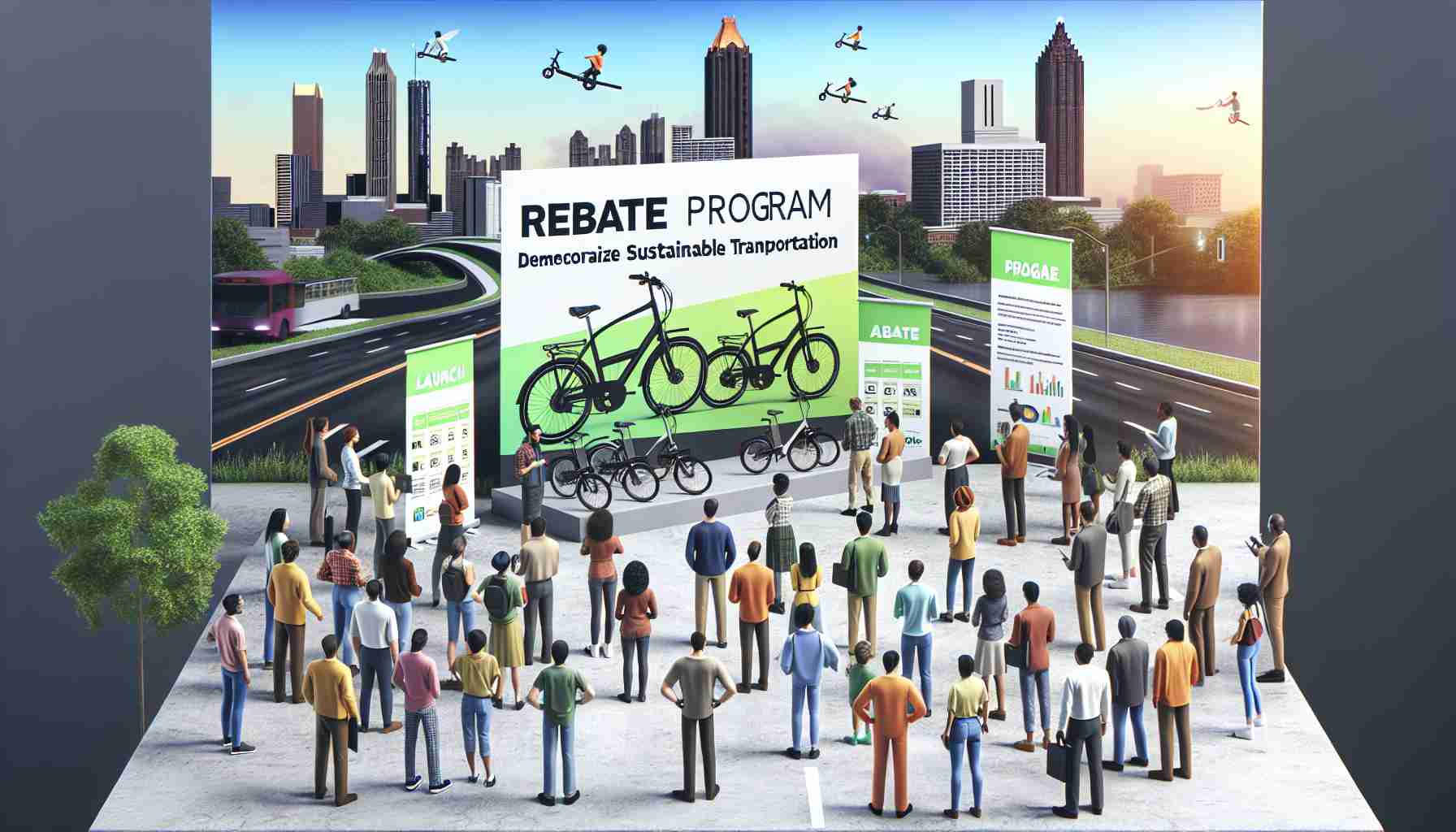The City of Atlanta is taking a big step towards building a greener future by introducing a new rebate program that incentivizes residents to purchase e-bikes. This initiative, spearheaded by PropelATL in collaboration with City Councilmember Matt Westmoreland, aims to reduce car dependency, promote sustainability, and make e-bikes more accessible to all Atlanta citizens.
Inspired by Denver’s successful e-bike rebate program, Councilmember Westmoreland saw an opportunity to bring the same benefits to Atlanta. The program has received a substantial boost from a $1 million city investment and is designed to prioritize individuals earning less than $54,000 a year, with 75% of the rebates reserved for this income bracket.
Under the approved plan, eligible residents can receive rebates of up to $2,000 when purchasing a new e-bike. The rebate options include $1,500 for a standard e-bike and $2,000 for a cargo e-bike for income-eligible individuals, and $500 for a standard e-bike and $1,000 for a cargo bike for other residents. This tiered approach ensures that e-bikes are accessible to a wide range of people, regardless of their income level.
Patrick Gregory, co-partner of Peachtree Bikes, expressed his excitement about the rebate program, stating that it “opens up a lot of doors for people who normally wouldn’t be on bikes before this.” E-bikes, hailed for their ability to boost a rider’s pedaling power, have gained popularity in recent years and now represent about half of the business at Peachtree Bikes. With the rebate program in place, the cost barrier for potential cyclists is significantly lowered.
Managed by the Atlanta Regional Commission, the rebate funds will be distributed through a quarterly lottery system, ensuring that residents have multiple opportunities to benefit from the initiative. Applications can be submitted online through the ARC’s website, providing a convenient and straightforward process for interested individuals.
Councilman Westmoreland also emphasized the integration of the rebate program with ongoing infrastructure improvements. Atlanta’s $750 million bond, dedicated to enhancing the city’s cycling infrastructure, further complements the initiative, creating a comprehensive and eco-friendly transportation ecosystem for Atlanta’s residents.
By launching this e-bike rebate program, Atlanta is not only encouraging sustainable transportation but also democratizing access to this eco-friendly mode of travel. As more residents opt for e-bikes, the city moves closer to its goal of reducing car dependency and building a greener, healthier future for all.
The introduction of the e-bike rebate program in the City of Atlanta is part of a larger effort to promote sustainability and reduce car dependency. This initiative is in line with the global trend towards greener transportation options, as more and more cities recognize the benefits of e-bikes.
The e-bike industry has experienced significant growth in recent years, with market forecasts predicting continued expansion in the coming years. Sales of e-bikes have soared as consumers become more aware of the environmental and health benefits they offer. E-bikes provide a cleaner, more efficient mode of transportation, reducing both carbon emissions and traffic congestion.
According to industry reports, the market for e-bikes is projected to reach a value of $46 billion by 2026. This growth is driven by factors such as increasing urbanization, rising fuel prices, and a greater emphasis on sustainable living. As more cities and governments implement initiatives like the e-bike rebate program in Atlanta, the demand for e-bikes is expected to grow even further.
However, there are challenges that the e-bike industry faces. One of the main concerns is the high upfront cost of e-bikes, which can be a barrier for many potential buyers. The e-bike rebate program in Atlanta addresses this issue by providing financial incentives to make e-bikes more affordable and accessible to a wider range of people. By reducing the cost barrier, the program aims to encourage more residents to choose e-bikes as a mode of transportation.
Ensuring proper infrastructure for e-bikes is another key issue. This includes designated bike lanes, charging stations, and secure parking facilities. Atlanta’s $750 million bond dedicated to enhancing cycling infrastructure demonstrates the city’s commitment to supporting sustainable transportation options and integrating the rebate program with ongoing infrastructure improvements.
By offering rebates specifically for income-eligible individuals, the program also aims to address equity and accessibility issues. E-bikes have the potential to provide affordable transportation alternatives to low-income communities, improving mobility and reducing transportation costs.
For more information about e-bikes and the culture of cycling in Atlanta, visit Atlanta Bicycle Coalition. This organization is dedicated to making Atlanta a safer, more bike-friendly city and provides resources for residents interested in cycling.
As Atlanta moves towards a greener future, the e-bike rebate program plays a crucial role in encouraging sustainable transportation and building a more environmentally friendly city. By making e-bikes more accessible and affordable, this initiative has the potential to transform the way people commute and contribute to a healthier, more sustainable Atlanta.







